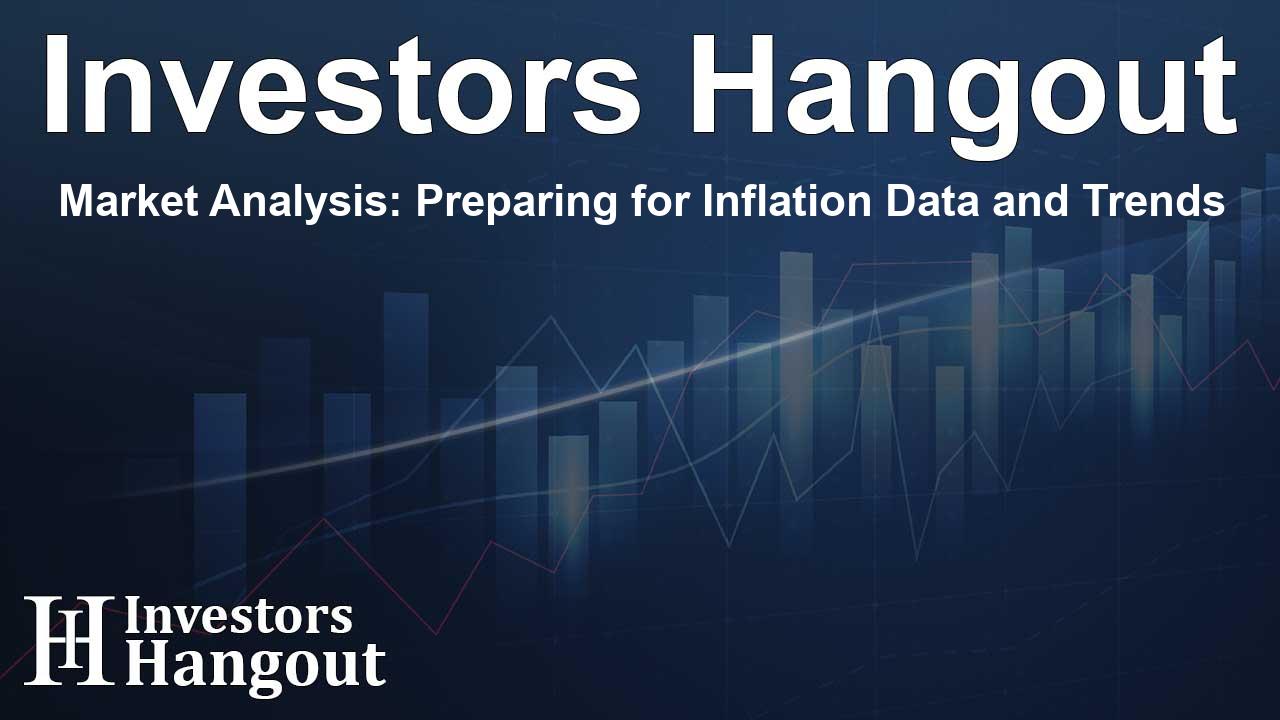Market Analysis: Preparing for Inflation Data and Trends

Understanding the Upcoming Inflation Reports
This week, investors are gearing up for the release of the July CPI report, which could significantly influence market expectations around inflation. Market-based metrics, such as inflation swaps, currently indicate the possibility of elevated inflation persisting into mid-2026. Analysts and market watchers are keenly focused on whether the forthcoming data will validate, amplify, or dispute these inflation expectations.
The Significance of CPI Trends
The July CPI report is crucial, particularly as expectations predict a potential rise in inflation rates. Recent indicators from various sources, including the regional Federal Reserve systems and ISM reports, suggest inflation might not remain as subdued as previously assumed. While the rapid inflation rates of 2022 and 2023 are not expected to resurface, we could see inflation rates climbing back to the 3.5% to 4% range.
Predictions for the CPI Report
As anticipated, consensus forecasts predict a month-over-month increase in core CPI by 0.3%, up from 0.2%. Year-over-year, it is projected to reach 3.0%, up from 2.9%. In contrast, the headline CPI is expected to slow to 0.2% monthly, decreasing from 0.3%, while the annual headline CPI should rise to 2.8% from 2.7%. The inflation swaps market points to a similar trajectory, aligning expectations for July’s annual figure at around 2.8%.
Market Response to Inflation Trends
The market's reaction will heavily depend on whether the upcoming data confirms an upward trajectory of inflation or suggests it has stabilized. Unlike the stock or bond markets, "the market" in this scenario primarily denotes the inflation swaps market.
Analyzing Long-Term Inflation Expectations
As per current projections, inflation swells to around 3.4% in May 2026 before gradually tapering off. Over the past few months, market expectations regarding peak inflation have shifted, with estimates pushed back in time and reduced in intensity. Should the CPI report exceed forecasts, it could heighten expectations for inflation, resulting in an earlier peak.
Current Fluctuations in Inflation Swaps
Presently, one-year inflation swaps appear near 3.4%, two-year swaps hover around 3.0%, and five-year swaps sit near 2.7%. Since April, there has been a general rise in inflation expectations across different maturities. The five-year swap is vital; if it exceeds 2.8% to 2.9%, it could signal markets' perception of persistent inflation issues ahead.
Recent Economic Indicators
Recent economic data reflects growing caution among market participants. For instance, the ISM Services Prices Paid index reached 69.9 in July, one of the peak values recorded since early 2023. The ISM Manufacturing Prices Paid index also remains along elevated lines. Both indicators usually precede shifts in the CPI by about three months, further supporting the notion of rising inflation.
Anticipated Reports This Week
Alongside the CPI report, the PPI report slated for release on August 14 is expected to illustrate annual growth of 2.5%, up from 2.3%, with core PPI projected at 2.9%, an increment from 2.6%. On August 15, reports on import/export prices and retail sales will surface, coinciding with the University of Michigan inflation expectations survey, which currently reflects a five-year expectation of 3.4%, marking a multi-decade high.
The Relationship Between Inflation and Treasury Yields
Inflation expectations often align with Treasury yields. The current 10-year yield has been stabilizing between 4.20% and 4.50%, while the 30-year yield remains around 4.80% to 4.85%. An uptick in inflation expectations could drive these yields higher, which may prove beneficial for banks, as long as inflation doesn’t drastically eat into profit margins.
Technical Signals and Market Speculation
Technical analysis suggests that the 10-2 year yield curve may be poised to inch toward 1%, led by increasing long-term rates contrasted with easing short-term rates. This week's inflation data could prove to be the stimulant that determines the emergence of such a trend.
Frequently Asked Questions
What is the significance of the upcoming CPI report?
The CPI report is crucial for understanding inflation trends and setting market expectations, which can influence economic policy and investment strategies.
How could market reactions change with varying CPI figures?
Market reactions depend heavily on whether CPI data confirms expectations or shows a decline; higher figures might lead to increased inflation forecasts.
What do rising inflation expectations indicate for the economy?
Rising inflation expectations indicate that market participants foresee persistent inflation, which can affect interest rates and overall economic health.
How do Inflation swaps work in predicting market conditions?
Inflation swaps allow market participants to hedge against inflation risks, and they reflect collective expectations about future inflation rates.
What economic indicators should investors monitor this week?
Investors should closely watch the CPI and PPI reports, retail sales data, and inflation expectations from surveys to gauge potential economic movements.
About The Author
Contact Thomas Cooper privately here. Or send an email with ATTN: Thomas Cooper as the subject to contact@investorshangout.com.
About Investors Hangout
Investors Hangout is a leading online stock forum for financial discussion and learning, offering a wide range of free tools and resources. It draws in traders of all levels, who exchange market knowledge, investigate trading tactics, and keep an eye on industry developments in real time. Featuring financial articles, stock message boards, quotes, charts, company profiles, and live news updates. Through cooperative learning and a wealth of informational resources, it helps users from novices creating their first portfolios to experts honing their techniques. Join Investors Hangout today: https://investorshangout.com/
The content of this article is based on factual, publicly available information and does not represent legal, financial, or investment advice. Investors Hangout does not offer financial advice, and the author is not a licensed financial advisor. Consult a qualified advisor before making any financial or investment decisions based on this article. This article should not be considered advice to purchase, sell, or hold any securities or other investments. If any of the material provided here is inaccurate, please contact us for corrections.
